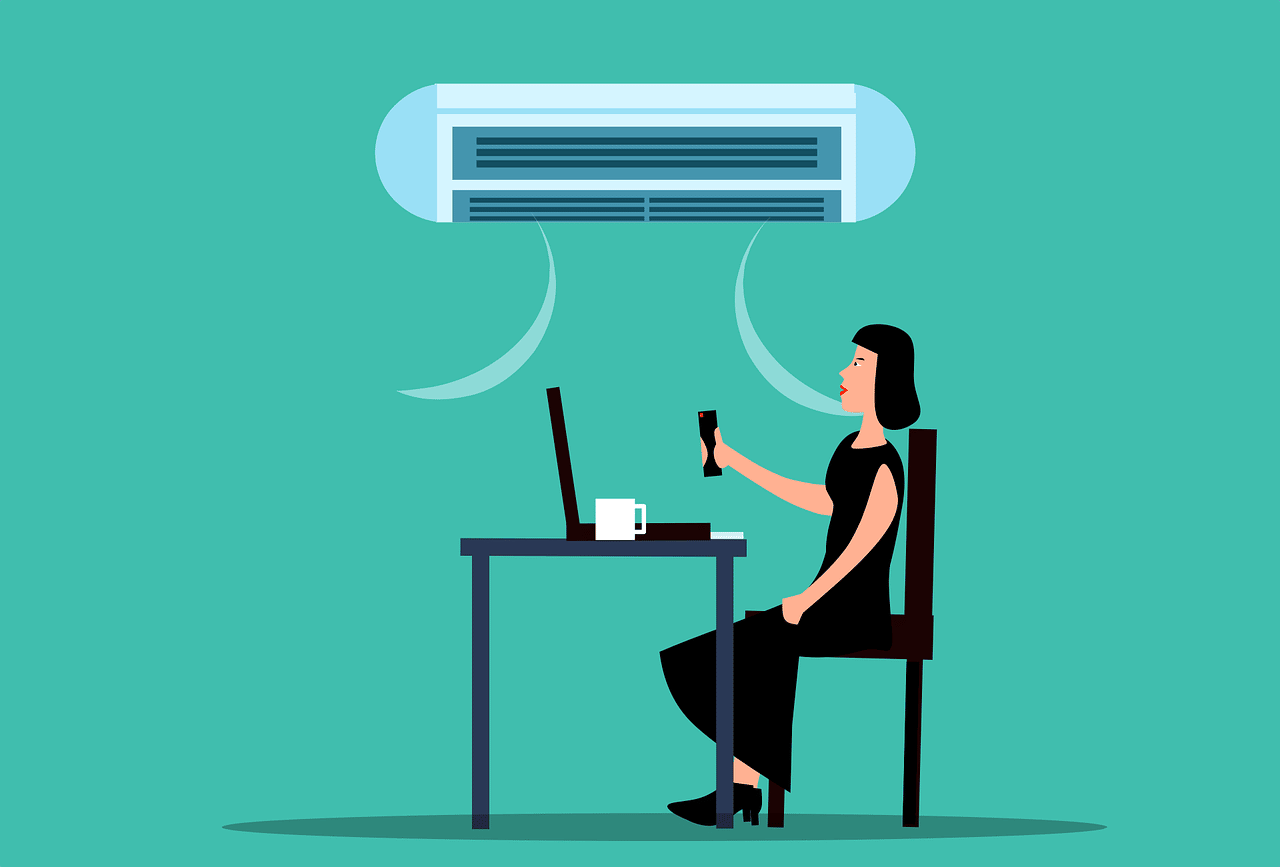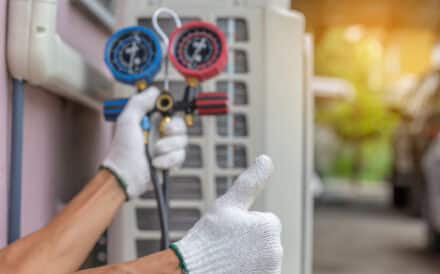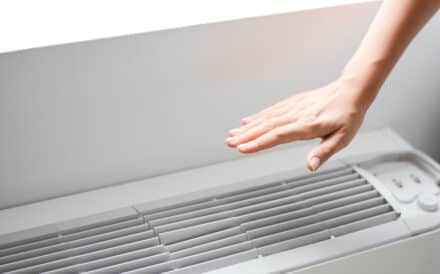Should I Repair Or Replace My Broken Air Conditioner?

No matter what appliance we’re talking about, a common question is always whether an AC replacement or repair is a better option. So it’s not a surprise that people want to know when it’s time to replace their air conditioner, or if they can keep going by repairing it. Yes, repair at the moment can be the less costly solution, but is it always over time? In addition to cost, there can often be other factors involved, especially when we’re talking about units that may be decades old.
Because there can be a lot of nuances to this topic, we’ve divided this into sections to better help you decide what’s best for your A/C unit in any given situation.
Comparing A/C Costs
After realizing and weighing the pros and cons to your system, it can still frequently come down to price. As we said, price can be looked at in terms of the “right now” cost, versus the “future” costs you’ll be incurring.
Most likely, the “right now” cost to fix your air conditioner will be less than replacing it, but if your old, repaired A/C is not running properly you may be stuck spending more than necessary to keep your home cool. Not to mention the gamble of fixing it now only to be forced to replace it within a year.
Think about how many years your air conditioner has served you, and compare that with how long it’s lifespan is estimated for. If you’re close or over the amount of years expected, you can be pretty sure it’s not going to last much longer, and that a replacement may be the better route in terms of finances. On the other hand, if your air conditioner should have years to go, or the repair is something so minimal the gamble is worth it, then it might be a better option to try fixing it first.
When to Have an HVAC Checkup
Like most things in our life, appliances or otherwise, regular maintenance is key to good upkeep. We cannot stress enough how much a basic yearly air conditioner check and service can help prolong the life of your A/C.
Think of how easy it is to remove dust or replace a filter on something, but how costly it could be if that dust prevented air from circulating and caused a motor to overheat. This is just one example of why regular service can help avoid greater future costs.
Signs to Replace an Air Conditioner
Sometimes there are things that come up that make it more obvious a replacement is necessary.
One of the more recent things to note is about industry-wide freon updates. As of January 2020, an EPA-regulated ban went into place on the production and import of R-22 Freon. Although there is a tie-over fix to this by installing added equipment, it’s still best to replace your air conditioner as soon as possible because your A/C will not be running as efficiently as you’re used to.
Another simple thing to know if you should replace your A/C is checking on your warranty. A warranty runs out typically after around 10-12 years of use. Although you can continue to repair a unit on your own, the efficiency has definitely diminished in what you are using and may be costing you an unnecessary price in energy use. It’s better to look for a new unit with a higher Seasonal Energy Efficiency Ratio (SEER) rating.
Hidden Signs Your A/C Isn’t Working Properly
Some signs to replace may not be as in-your-face, but if you know what to look for they can present themselves in other ways.
Ask yourself some of these questions during your typical A/C days to see if a replacement may be needed:
- Is my utility bill higher than it usually is?
- Does it feel like there is a lack of airflow?
- Have I, or other household/office members, commented on a difference in comfort?
Although these things may seem small and can often be ignored, they can be helpful signs that there is something wrong with your air conditioner that needs to be addressed by a professional.
Best Time to Replace Your A/C
The rule of thumb is to replace your air conditioner before it completely fails. This follows similar logic as to why it’s better to maintain than have to pay for major repairs.
Replacing last minute can not only leave you uncomfortable, and possibly scrambling to make a replacement, it can also force you to pay extra costs to have it done off hours or peak times of the year.
If you are doing regular maintenance and determine it will need to be replaced sooner than later, one of the best times to do the replacement is in the spring. Doing routine annual checks in the spring, and finding potential problems that warrant replacement, help you have these services done before it becomes the high season.
Waiting until June or July to do replacements means you miss out on discounts that are often offered off-season. It also means you’ll be competing with others for the attention of HVAC techs during the busiest season of the year.
What to Look for in a New Air Conditioner
A top priority for most air conditioners is efficiency. Everyone wants a unit that can keep their space cool, while costing them the least amount of money on their energy bill.
Fortunately that is also one of the key technologies A/C manufacturers are always looking to improve as well. That means that if your A/C is old and in need of replacement, it’s almost guaranteed the new one you find will be an improvement in terms of efficiency.
The big thing to look for and compare is the SEER rating. The Seasonal Energy Efficiency Ratio tells us the average cooling output a unit provides compared to the energy it uses. The higher the SEER rating, the better the efficiency.
While it may be intuitive to think you should just go with the highest SEER rating, it’s important to compare the price of the unit and decide how often you’ll be using it.
Also keep in mind that your SEER rating is the maximum efficiency output, meaning in different scenarios the energy ration may differ. Although there are all different SEER ratings, we’re going to talk about the most common household options:
14 SEER
The U.S. Department of Energy enforces minimum SEER requirements. These differ one point by region, but for our area of Nevada the minimum is 14. Don’t let it being the minimum make you think it’s inefficient though. As we stated before, any upgrade is probably useful if you have an old unit–which are typically around 8 or 9 SEER.
16 SEER
How much more efficient is a 16 SEER over a 14 SEER unit? According to most calculations, a 16 SEER unit uses about 13% less than a 14 SEER. This definitely can be felt on an energy bill, especially if your A/C is running frequently like we often have them going in Nevada.
18 SEER
Having a higher SEER can be worth the cost. Many times these models work more efficiently because they have extra systems in place, like variable-speed compressors or blowers. These systems help create more even temperatures during mild weather (when single systems might feel the need to turn on and off frequently), and in areas with higher humidity.
Because these have more technology and extra parts, the cost for these units is higher than those that are less efficient, so that is something to consider when deciding what you really need. Although it is smart to look into energy rebates and other ways to get money back from choosing higher energy-efficient options.
If you need any maintenance or repairs on your HVAC units, or have questions about whether a replacement or repair is right for you, we’re here to help. Feel free to call us with any concerns or questions. We are available day or night, and weekends too.



